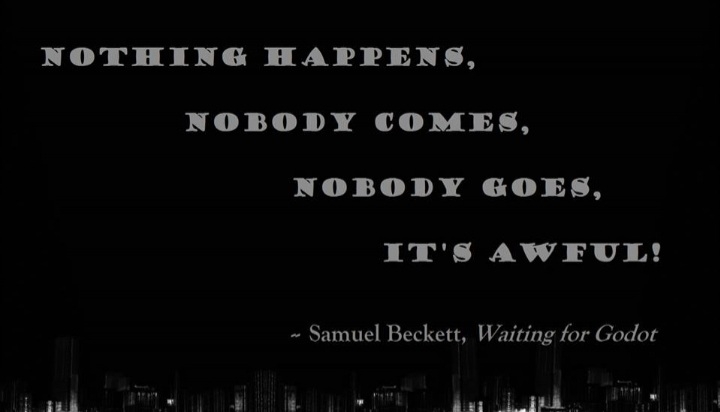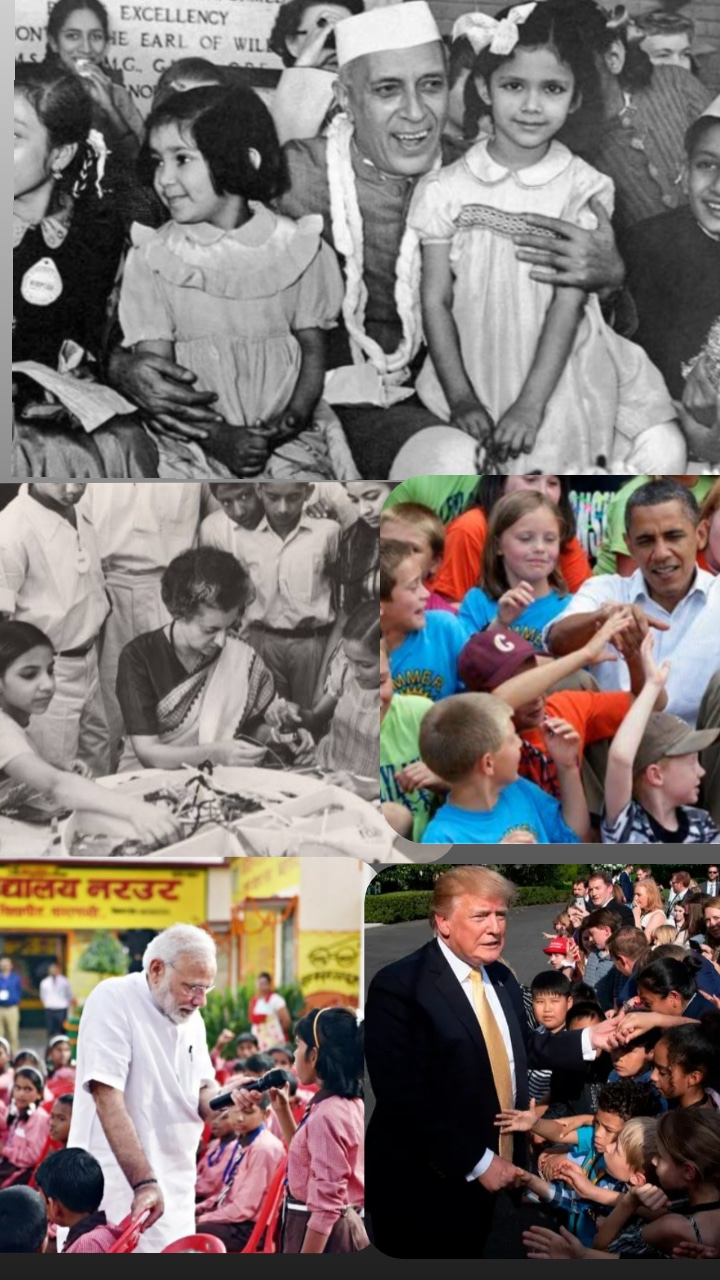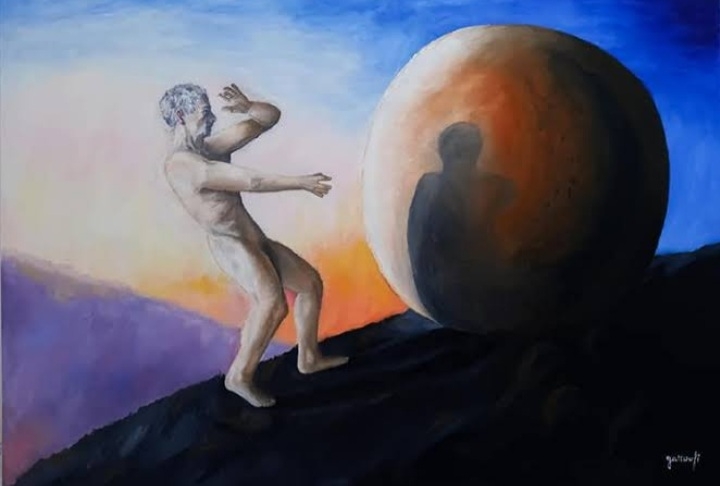Hello learners! I am Himanshi Parmar. This blog i have written in a response to activity assigned by Professor Dilip Barad sir. (Click here to read that blog)
I have tried to penned some important questions assigned from the movie "Waiting for Godot." But before that i want to discuss about movie and Play also. The points i have included in my blog are this,
1) About the Film.
2) About The Play.
3) About the author.
4) Important questions from movie.
About the film :-
Waiting for Godot is beautiful film of 2001, Directed by Michael Lindsay-Hogg. The film was adapted from Samuel Beckett's play with same title Waiting for Godot. Film made up of two parts. In both the part two men are waiting for a man named Godot. But ultimately he isn't come. Instead of him, other two men are come, they make some conversation, And goes. At the end of each day, one little boy come as a messenger of Godot and give message that, Godot will come tomorrow surely.In the film, role of two main lead named Estragon and Vladimir are performed by Barry McGovern as a Vladimir and Johnny Murphy as a Estragon. The film is available in YouTube. Do watch it here.
About the Play :-
Play Possess same name as movie, Waiting for Godot. Story is almost same as above. Movie is adaptation from Play. The Play was translation of French play, by Samuel Beckett.he Translate his own French play named "En attendant Godot" into English. En attendant Godot was composed between 9 October 1948 and 29 January 1949. But the English translation Waiting for Godot translated into in 1955 in London.
The play is neither Comedy nor a tragedy, but it is a tragic comedy. By using this type in play, Beckett try to break traditional rules of play. The play make us bore sometimes because in the entire play two characters are doing nothing but talking about some useless, silly things. Which ultimately give absurd feeling. Which is the core idea of play. Because the play is part of modern literature. Written between two world wars. And directly reflects human condition of that time, the time in which play was written, is a time of great absurdity. Which ultimately reflected in play.
Waiting for Godot is different than any other play because other traditional plays are end with a moral message, also it has proper storyline, like beginning- story- ending, and it is easy to understand also. But waiting for Godot is not conveying one particular message, but it forcing audience to interpret the play. Also it is not follow any stage rules, or storyline. And it has no proper beginning - story - ending. Still it is considered as a greatest play with Hamlet and Oedipus Rex.because waiting for Godot raising universal questions like, why we are existing? What is our significance? For what purpose we are here in world? What is our ultimate goal? Etc. The entire play was very well written by Samuel Beckett. Let me discuss briefly about him.this poster will help to understand the play im more better way.
Samuel Beckett :-
Full name of Samuel Beckett is Samuel Barclay Beckett. He was born in 13 April 1906 in Ireland and died on 22 December 1989 in Paris, France. He was a great novelist, playwright, short story writer, theatre director, poet, and literary translator. He is known for his absurd drama. He came from Protestant Anglo-Irish family. But spent his most of the life in france. And because of that many of his drama first he wrote in French and later on translated in English. He is considered as one of the last modernist writers. Also Martin Esslin considered him as a key figure of "Theatre of the Absurd". He was awarded the 1969, Nobel Prize in Literature. His famous works are,
1) Waiting For Godot (1948–1949)
2) Happy Days (1961)
3) More Pricks than Kicks (1934)
4) Murphy (1938)(Beckett's First novel)
5)Breath (1969)(World's shortest drama)
6) Company
7) Rockaby
This poster is a biographical chart of the Samuel Beckett's life.
Question - Answers :-
1) In both Acts, evening falls into night and moon rises. How would you like to interpret this ‘coming of night and moon’ when actually they are waiting for Godot?
coming of night and moon, is at first sight goes against the archetypal theory. Generally according to archetypal theory night is symbolize as a horrific and pessimistic. And darkness is a symbol of evil and fear. But here, Beckett goes against this archetypal theory and taken night as a symbol of peace. As Vladimir believe that, night is a end of wait for godot.
Secondly, night is result of Vladimir and Estragon's wait. They are waiting for godot for whole day and at the end they get nothing more than darkness of night. Which shows hopelessness and nothingness of life. And when the night gets over, Sun rise is shown as a rise of human desire agin. Which is positive sight but again the end of rising sun is darker night only.
2) The director feels the setting with some debris. Can you read any meaning in the contours of debris in the setting of the play?
Debris is rubble, wreckage, ruins, litter and discarded garbage/refuse/trash, scattered remains of something destroyed, discarded, or as in geology, large rock fragments left by a melting glacier etc. In movie director use setting of debris. Which reminds Post World war situation. The play was written after world war two, Or we can say after the both world war. So world war influenced filmmaker a lot. If we see history of both world war, there was a lot of distructions, and disaster at that time. Millions of people were died, buildings, cinema halls, Malls, Hospitals, School - Colleges were collapsed. Trees and Road were broken. All countries became heaps of rubbish. Become debris. Which give a sign of nothingness, Because after the world war one, people were aware about the disaster of war. Still world war two happened and no one could stop that. And the terrible game of war played again.
So that war reference, filmmaker use here, to show disaster and distruction of Post world war.
3) Do you agree: “The play (Waiting for Godot), we agreed, was a positive play, not negative, not pessimistic. As I saw it, with my blood and skin and eyes, the philosophy is: 'No matter what— atom bombs, hydrogen bombs, anything—life goes on. You can kill yourself, but you can't kill life." (E.G. Marshal who played Vladimir in original Broadway production 1950s)?
Yes, I agreed that, Waiting for Godot is a positive play. The play not only introduced us to hopeless life and world but also teach us to live in hopeless world with full of hope. The play is set in post - world war. And we see, people witnessed both the world war and disaster too, but they wasn't stop to live. They face the difficulties, and in between they constantly trying to find a meaning of life in meaningless world. So that sight give us positivity for life.
Another is Vladimir and Estragon who give positive vibes. the entire play is about waiting. Estragon and Vladimir waiting for a man named Godot for two days. But Godot did not come both the days. The story is like, a day arise, Estragon and Vladimir waiting for godot, and the day ends, again the same cycle of time. And they continue to wait. If we see both the character and their action symbolically, then we find that, we are living our life like both this characters, we also are waiting for something like, sometimes for happiness, sometimes for peace, for death, for good luck, for worry less life. And we never get it but still we are waiting hopefully. So that hope we get from Estragon and Vladimir.
4) Do you think that the obedience of Lucky is extremely irritating and nauseatic? Even when the master Pozzo is blind, he obediently hands the whip in his hand. Do you think that such a capacity of slavishness is unbelievable?
Yes, Obedience of lucky is extremely irritating and nauseatic. In Act - 1, Beckett introduced Lucky and Pozzo in play. Pozzo is master and Lucky is Slave. Pozzo is portrayed so Arrogant and he treat lucky like a object. Insult him and misbehave with him. He for his all work relying on lucky. And lucky doing all his work without questioning. Which is quite terrible to see this kind of slavery.
Even in Act - 2 Pozzo got blind and Lucky got dumb. Lucky is now able to flee from this slavery but he were not flee, instead of it, he is doing slavery of Pozzo. He gives his rope to his master. And whip to beat himself. He is able to think, dance, sing, but he isn't doing it by his own choice but do when his master order him. Condition of lucky is extremely pitiable but we can't feel pity because we feel that, only he himself is responsible for his condition.
Slavery of lucky is similar to followers of Nazi. They are also salve under Hitler. They are not question while Hitler ordered to kill millions of jews. Hitler is like pozzo, blind man. Who is not able to see what is right, what is wrong and Nazis are like Lucky, dumb slave, who aren't questioning that why they are obedience his blind master? Also we can connect Lucky and Pozzo with religion. Pozzo is like various religions and Lucky is like followers of religion. Who are doing what ever right or wrong thing told them to do by religion. Without questioning, they are became dumb. Even when someone try to awake them, they harm him only. As lucky hit Estragon on his foot while he is trying to awake him.
5) Do you think that plays like this can better be ‘read’ than ‘viewed’ as it requires a lot of thinking on the part of readers, while viewing, the torrent of dialogues does not give ample time and space to ‘think’? Or is it that the audio-visuals help in better understanding of the play?
It is better to read play, instead of watch movie. Because when one can watch movie, the dialogues are so rapid, before we understand it completely, another two dialogues were already passed. The script of waiting for godot is full of deep meaningful dialogues and it requires lots of thinking to understand hidden meaning of dilogues. Which is not possible in movie.so reading is better than movie.
But visual is also help. When we watch movie, it introduced us to clothings, culture, expression, weather of that country. Which helps to understand the play more clearly. For example there is one dialogue of Wipping Willow tree, when it Foliaceous, it seems like, it is Wipping. But when it is leafless it seems happy. The tree is also used as a metaphor in foreign countries. But in india, we have no idea about it. So when we see movie we get idea of it what Estragon used to speak in reference of tree.
Estragon : No more weeping.
This dilogue we better understand if we watch instead of read.
6)Which of the following sequence you liked the most:
- Vladimir – Estragon killing time in questions and conversations while waiting.
- Pozzo – Lucky episode in both acts.
- Converstion of Vladimir with the boy.
I like the sequence when Vladimir and Estragon killing time in questions and conversations while waiting. At first sight constant dilogues between Vladimir and Estragon create boring environment. But when we start understanding the dilogues, it is full of deep meanings and give us some universal truths, like they are waiting for Godot, even if he didn't came, so ultimately their wait is meaningless. That give us feeling that, life is meaningless and still we have to wait for happiness, for joy, for good luck in this meaningless world. So the core concept of play is conversation between Vladimir and Estragon. So i like that part a lot.
Words :-
References :-











































.png)


